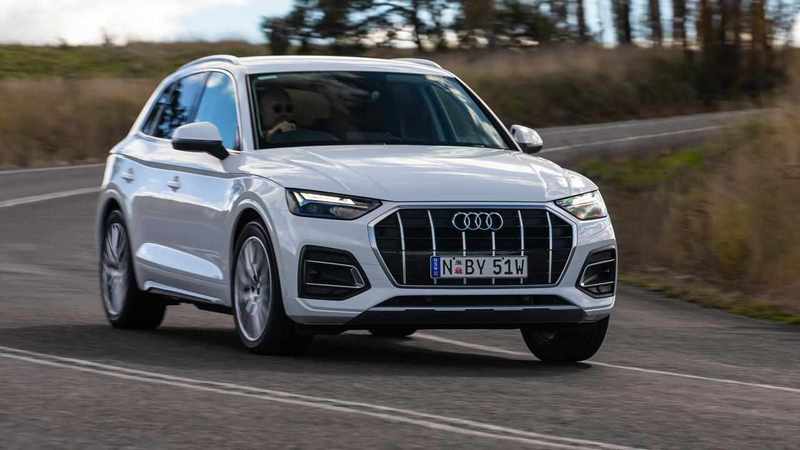Interesting fact: of the 50-odd road tests published in this space over the past 12 months, two have been cars powered by diesel engines.
Yes, two.
Petrol models continue to dominate, of course, providing the go for 31 of the weekly vehicle tests during the past year.
And electric vehicles and hybrids punched above their weight, contributing an impressive 19 new models to test, and attest, over the same period.
Which leaves a puny total of two oil-burners to have earned a spot on the driveway since this time last year - a Land Rover Discovery D300 and a Mitsubishi Pajero Sport.
That tells quite an interesting tale when it comes to the rise of electric vehicles and other models being heavily marketed and promoted by manufacturers.
Of course, the poll doesn’t fully reflect the market, but there’s no escaping there has been a significant atrophy of the once-popular diesel models as we move towards a zero-emissions world.
The numbers don’t lie - whether they be prices or emissions - and it’s clearly the dear old diesels that have borne the brunt of the growing EV surge.
Audi has been one of the true pioneers of the modern diesel engine with the development for its passenger range and through its all-conquering forays into motorsport, including at the famous Le Mans race where Audi diesels have won the trophy a dozen times.
Those wins relied upon the same qualities which have made diesels so popular in Audi road-going models - incredible torque and low-down power and, just as importantly, very frugal operation.
On the track, Audi’s R8 and R10 race cars could not only outpace their rivals but required fewer fuel stops to go the distance across the 24 hours of Le Mans.
On the road, it’s the SUV models - such as the tested car - that married so perfectly with that latest diesel technology.
Tested is the Audi Q5 35TDI, first launched in 2008 and is now getting towards the end of its second generation. But a recent facelift and some generous pricing to maintain its sales momentum makes this shapely soft-roader a compelling package.
Pricing for the model has dropped by more than $4000. It arrived in Australia almost two years ago as a special edition but has remained as the new “cheapie” in Audi’s full-sized SUV range.
Generously, at $68,350 plus on-road fees, it’s almost on par for pricing with its smaller sibling, the Q3.
So how does it shape up?
As well as maintaining the Q5’s classy, quality appearance and performance, the designers have generously not skimped on standard equipment either, where the list includes LED and daytime running lights, 20-inch alloys, heated exterior mirrors, leather seats (with heating), 10.1-inch touch-screen with satellite navigation and electric tailgate.
The safety suite is also amply specified, offering emergency autonomous braking and lane-keeping assist pedestrian detection.
Audi’s crisp, uncomplicated styling is seen to advantage both inside and outside this machine, which has aged particularly well.
The test vehicle was painted in a colour called “Ibis white”, which conjures up thoughts of the scruffy, so-named Ibis, colloquially known as the bin chicken, around the nation’s dumps and landfills.
There is nothing scruffy about this car, though.
In some ways this recently-updated Q5 is showing is age, from the slight clattering sound when the diesel fires up to the reassuring thrust of torque the engine delivers.
It doesn’t get Audi’s smart Virtual Cockpit infotainment system, but that’s an option in other Q5 models further up the family tree, anyway.
Unlike most Q5s previously offered, this model drives solely through the front wheels - a rare departure from the company’s patented Quattro all-wheel-drive.
Regardless, that didn’t noticeably affect the Q5’s road manners - well anchored and well balanced.
Beneath the bonnet is a seven-speed dual-clutch transmission, serviced by its two-litre turbo-diesel to deliver a useful 120kW and 370Nm.
Less compelling is the rather leisurely nine-second sprint from 0-100km/h but this car makes no pretences about its sporting capability.
The best number is this, though - it happily sips a freakishly frugal 4.8L/100km in combined running. That’s almost hybrid territory and is dazzling for a car this size.
So its impressive economy, drive and handling puts its modest performance in perspective.
And in this EV-heavy market, it’s comforting to jump into a car, look at the instrument panel and be reassured that it still has an estimated 1400km to empty. That’s a feature you won’t find on any EV for a while yet.
In the meantime, console yourself in the knowledge that you could drive from Cairns to Brisbane, or Sydney to Melbourne, without having to refuel and do it in style and comfort.
Of course there are pluses and minuses with diesels - not least the stubbornly high fuel price compared to the wild fluctuations of petrol.
The Q5’s rivals all have trouble keeping close to the Audi’s sub-$70,000 price - you’ll pay $65,000 for a BMW X3, $78,610 for a Land Rover Sport and, if your pocket allows, $90,100 for the Porsche Macan (which shares much of its underpinnings with the Audi).
All factors which just might increase the number of diesel engines in line for testing in the weeks and months to come.
AUDI Q5 35TDI Special Edition
HOW BIG?
It’s a genuine five-seat SUV - more than 520 litres of luggage space and comfort for five
HOW FAST?
Audi has become the master of the fast diesel. But not this one. It takes a steady nine seconds to rumble up to the speed limit.
HOW THIRSTY?
Audi’s official combined figure is 4.8L/100km - phenomenal for biggish vehicle like this one. The absence of AWD helps lighten the load.
HOW MUCH:
Retail price of $68,340 which is about $4000 less than the same vehicle cost two years ago.









